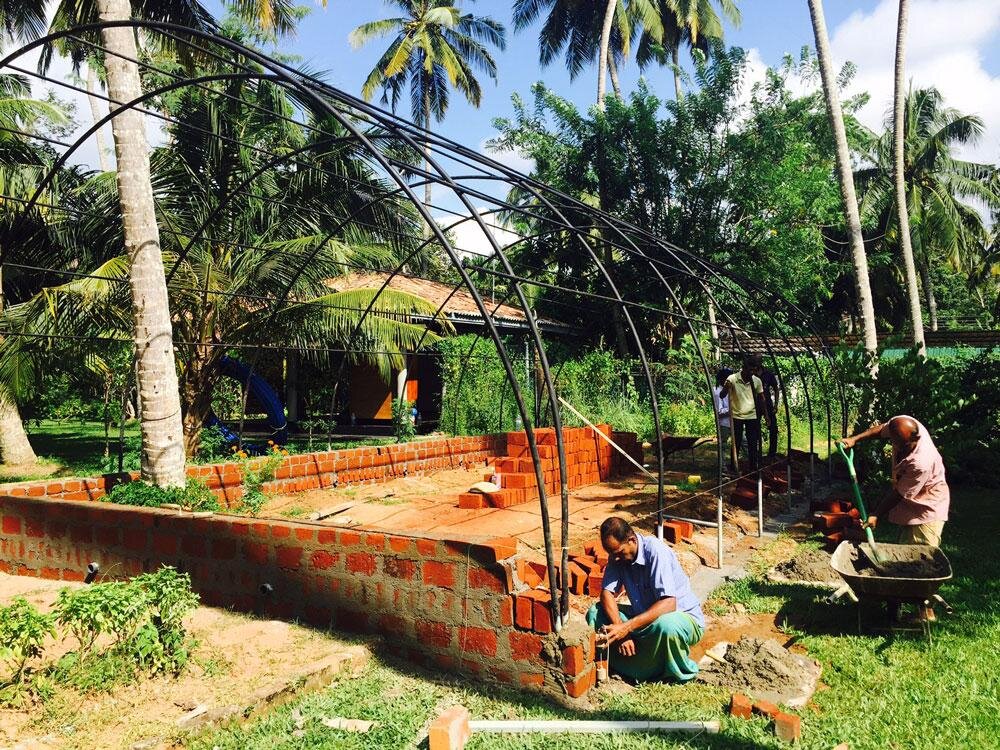
Talalla Retreat
Sri Lanka | 2017
Early Stage Sub-Tropic Prototype
A complete and regenerative waste solution for a notable five star resort in Sri Lanka—educating, engaging and enabling locals to take ownership and manage their food and green waste streams on-location.
Andrew travelled to Sri Lanka in mid 2017, and spent over 6 weeks in at the widely renowned Talalla Retreat, on the southern coast, in the tropical Sampaya House area in Talalla.
Working closely with the locals and staff at Talalla, Andrew (joined by colleague and scientist, Peter Howard) designed and built a fully functioning and sustainable organic WastePlant (a grass-roots prototype for the tropics), to manage the resort's food and green waste. The setup includes a large format GardenShip with in-ground composting units, a 'Worm Farm Hotel', a custom made biochar kiln, and carbon management bays.
This is an ongoing collaborative project, which has allowed us to meaningfully educate and directly empower locals with a new set of skills, allowing the resort and local area to become more sustainable in practice, and ecologically aware and enabled.
This system converts two waste streams to a single high value soil amendment: the worms turn kitchen waste into high-grade fertiliser and the biochar, made from green and garden waste from around the resort, forms a substrate to hold fertiliser minerals and promote healthy microbial life for hundreds of cycles during its lifespan in the soil.
Specifications
Worm Farm Hotel
Composting garden bed
Size: 10m x 2.5m (25m2)
Volumes: Approx. 830kg / 1660L of food and green waste per week
GardenShip Garden
Crop garden with canopy
Size: 5m x 9m
Food Production: 45m2
Carbon Bays
green waste Holding bays
Size: 2m x 2m each (40m2 total)
Capacity: 8m3 each (40m3 total)
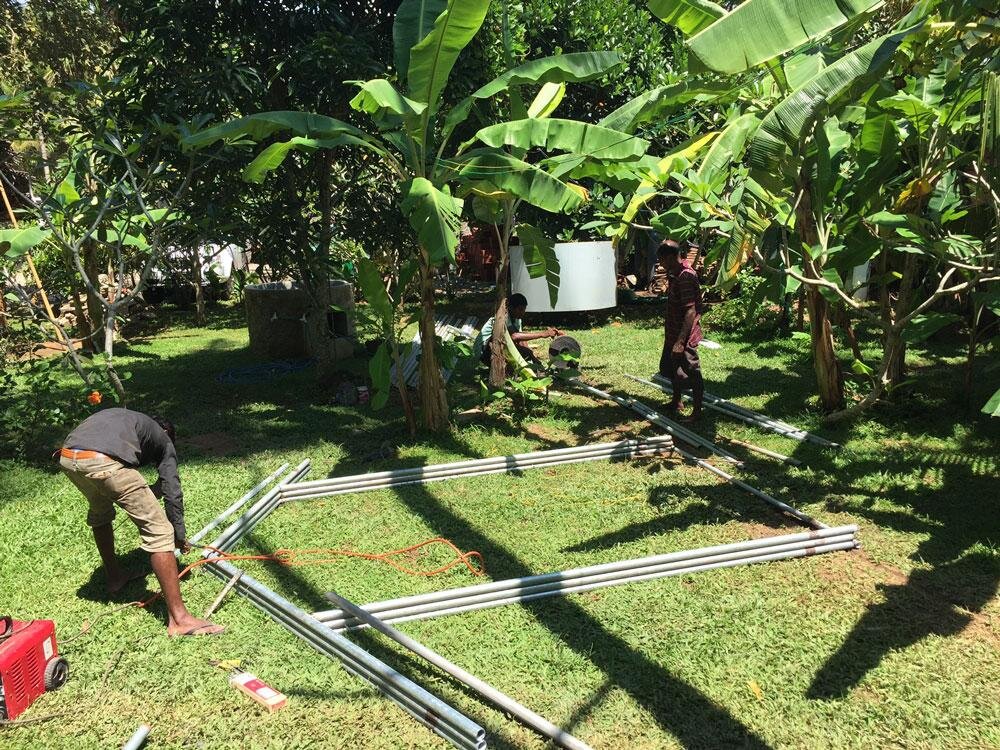
Welding individual frames for the "Worm Farm Hotel" compost garden structure
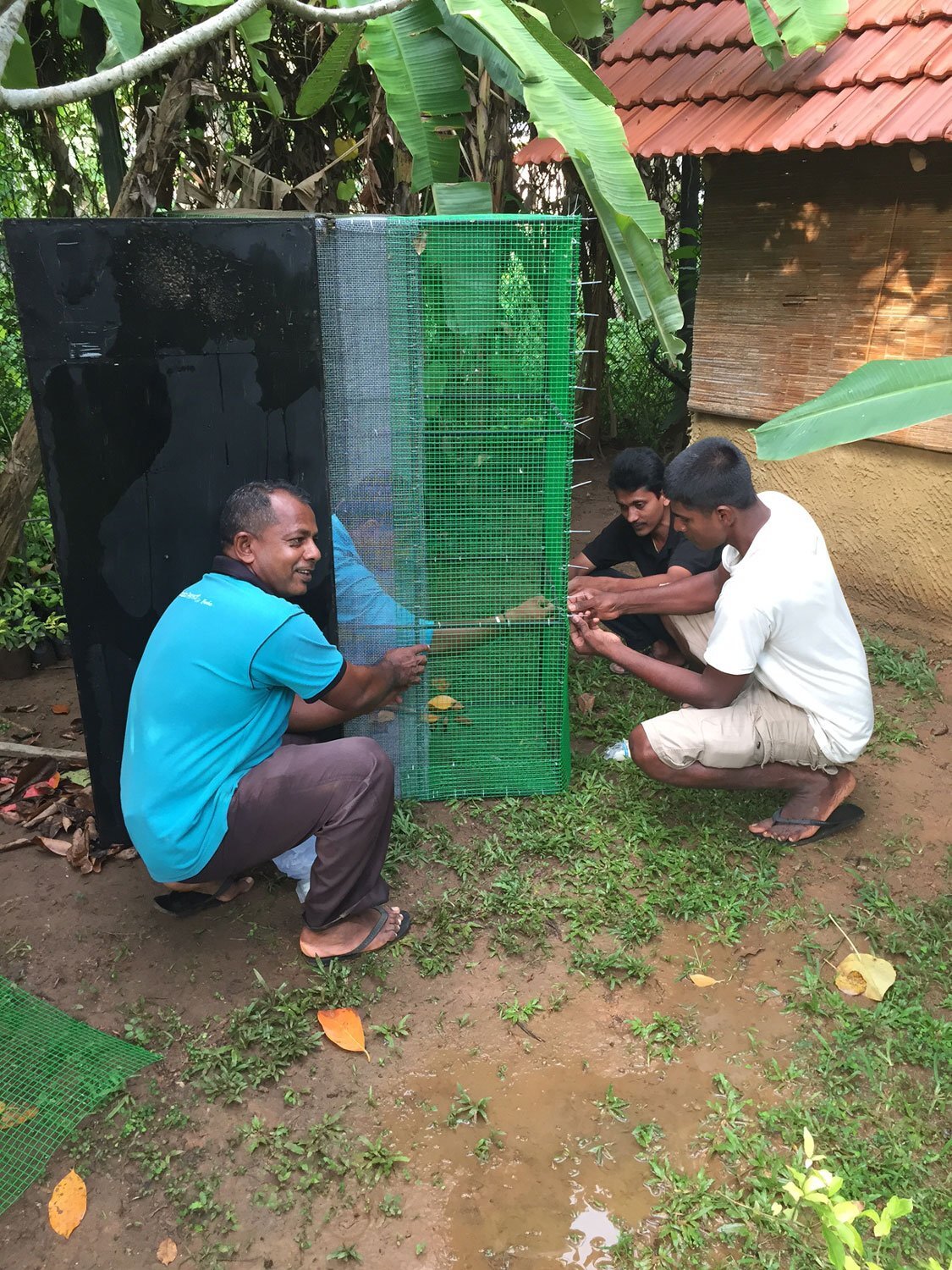
Building compost systems, 1500mm x 600mm x 600mm
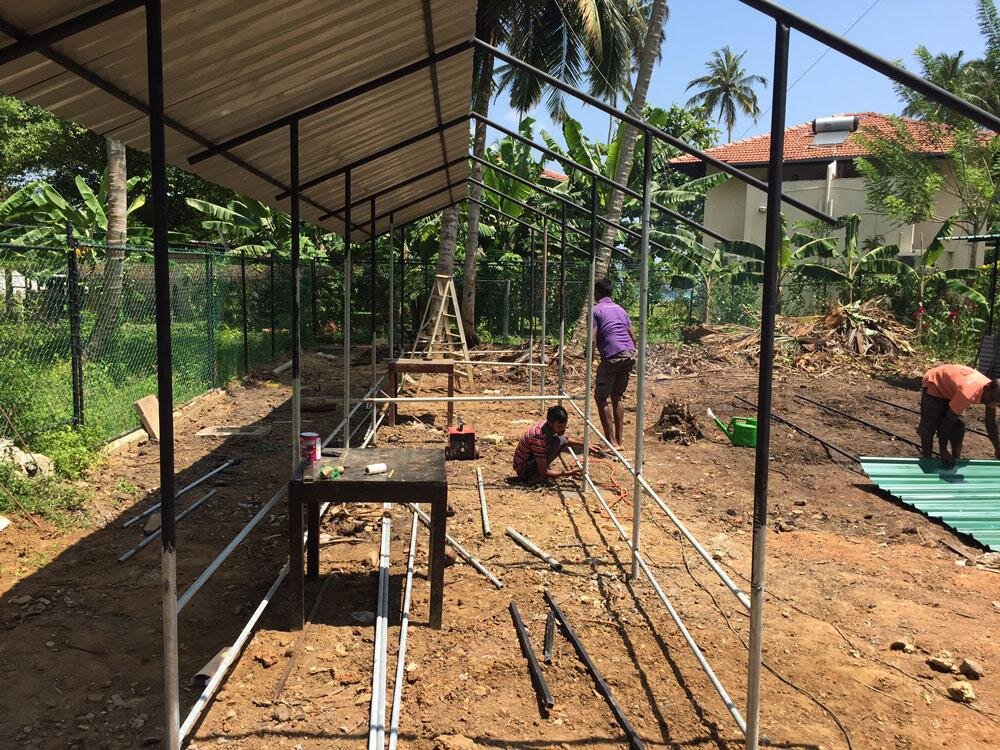
The "Worm Farm Hotel" with the roofing being assembled, prior to compost systems and soil being installed. The footprint of the structure is approx. 10m x 2.5m (25m2)
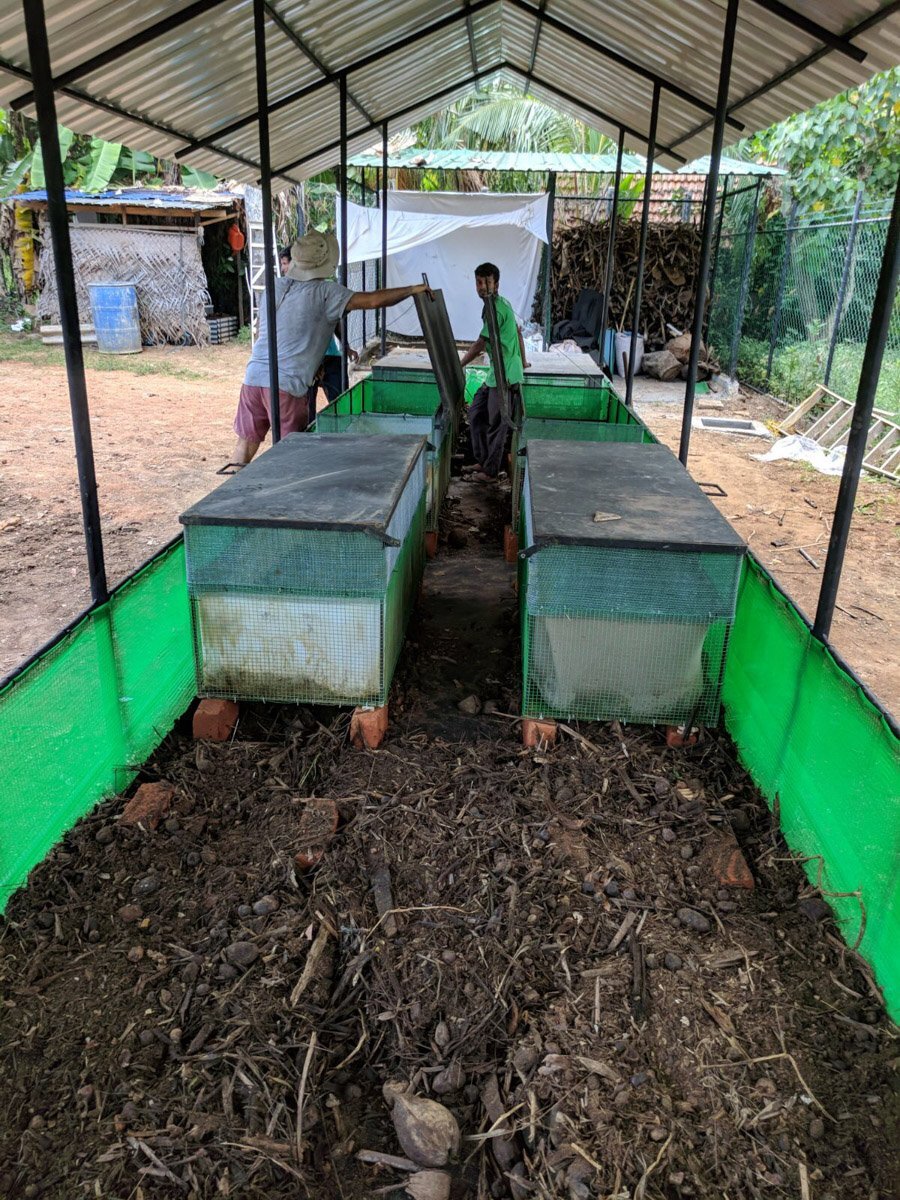
The "Worm Farm Hotel" with tropic compost systems being installed, before soil is introduced
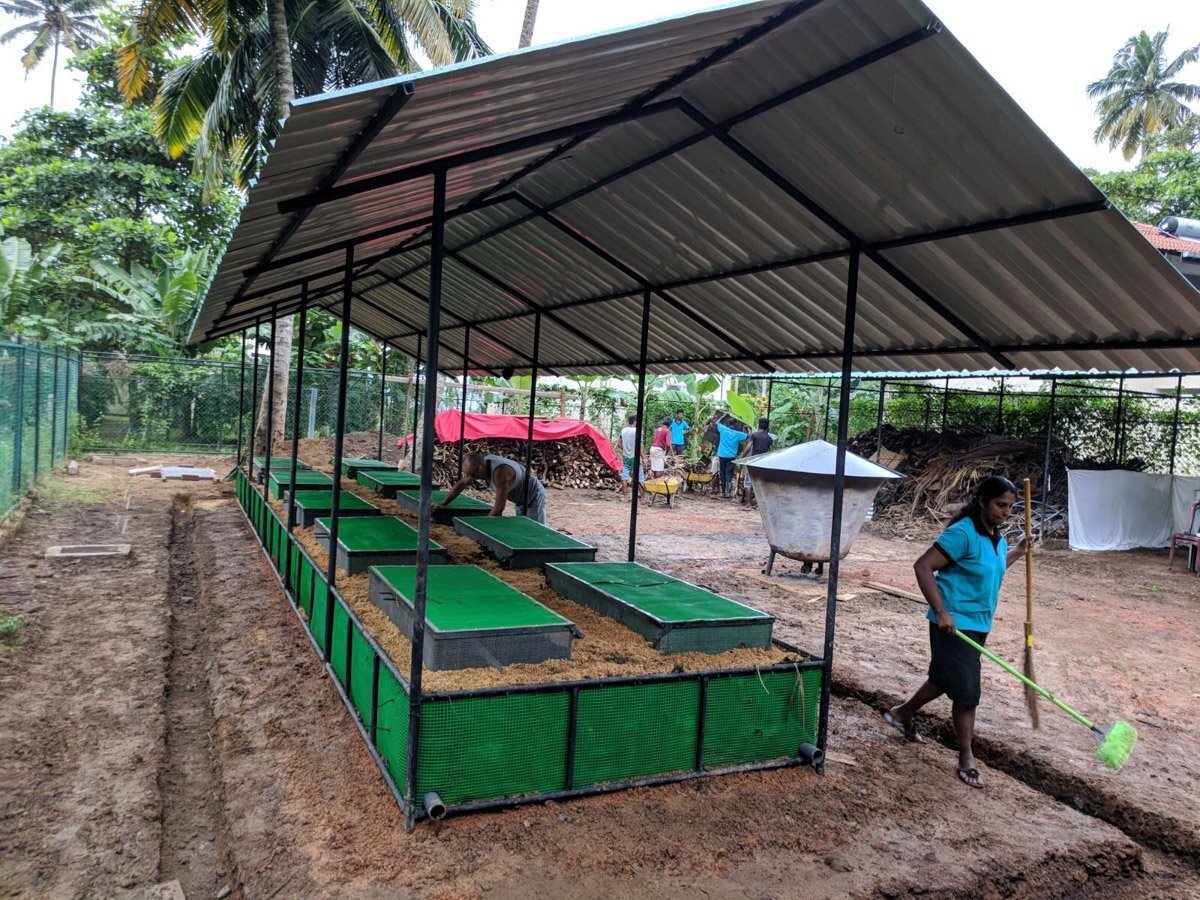
The completed "Worm Farm Hotel" with metal frame, tin roof, below-ground compost systems in place, and soil and mulch introduced. The footprint of the structure is approx. 10m x 2.5m (25m2)

Some of the building team with the "GardenShip" garden bed structure with brick base surround and curved steel canopy structure. The footprint of the structure is approx. 5m x 9m (45m2)
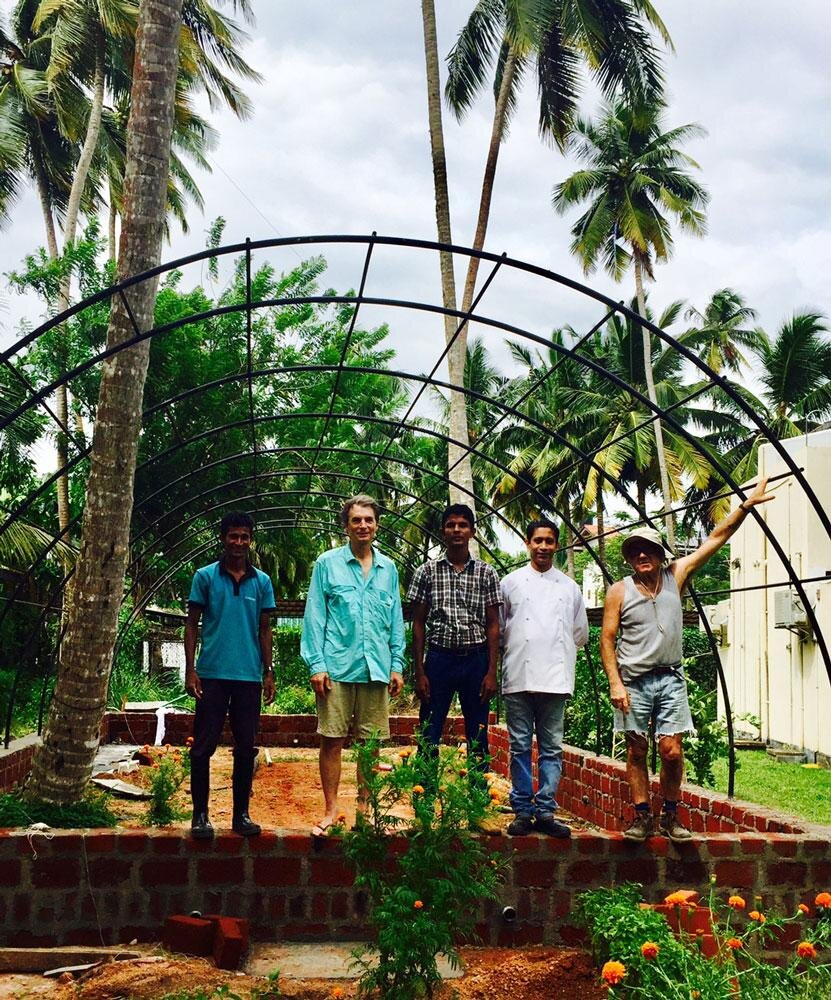
Some of the building team with the "GardenShip" garden bed structure with brick base surround and curved steel canopy structure. The footprint of the structure is approx. 5m x 9m (45m2)
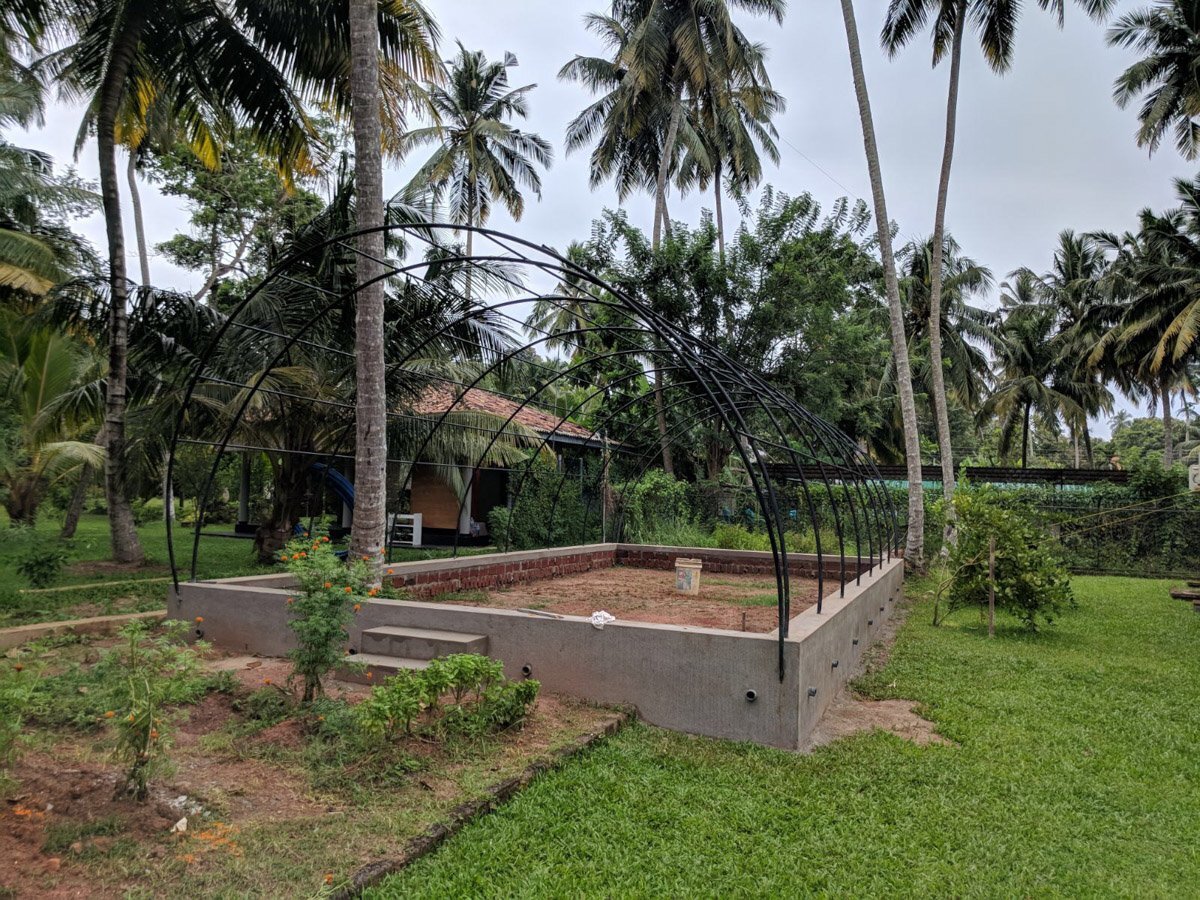
The "GardenShip" garden bed structure with brick base surround and curved steel canopy structure. The footprint of the structure is approx. 5m x 9m (45m2)
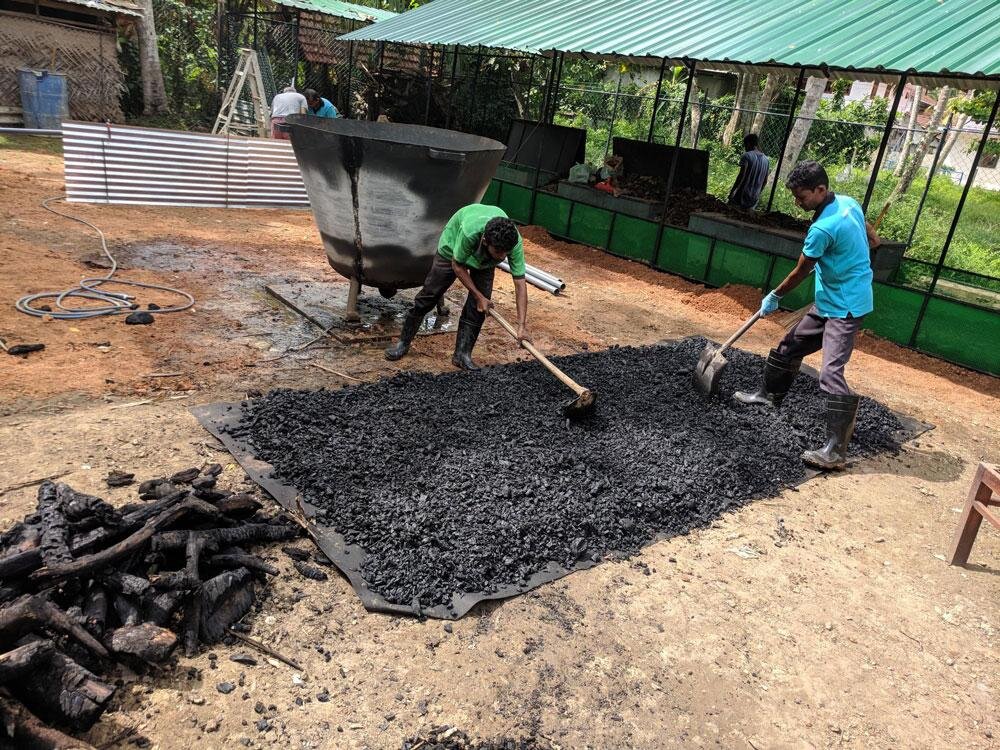
Biochar being produced using the biochar kiln, from collected garden and woody waste around the resort. Biochar is a highly beneficial natural soil amendment for increasing microbial density.
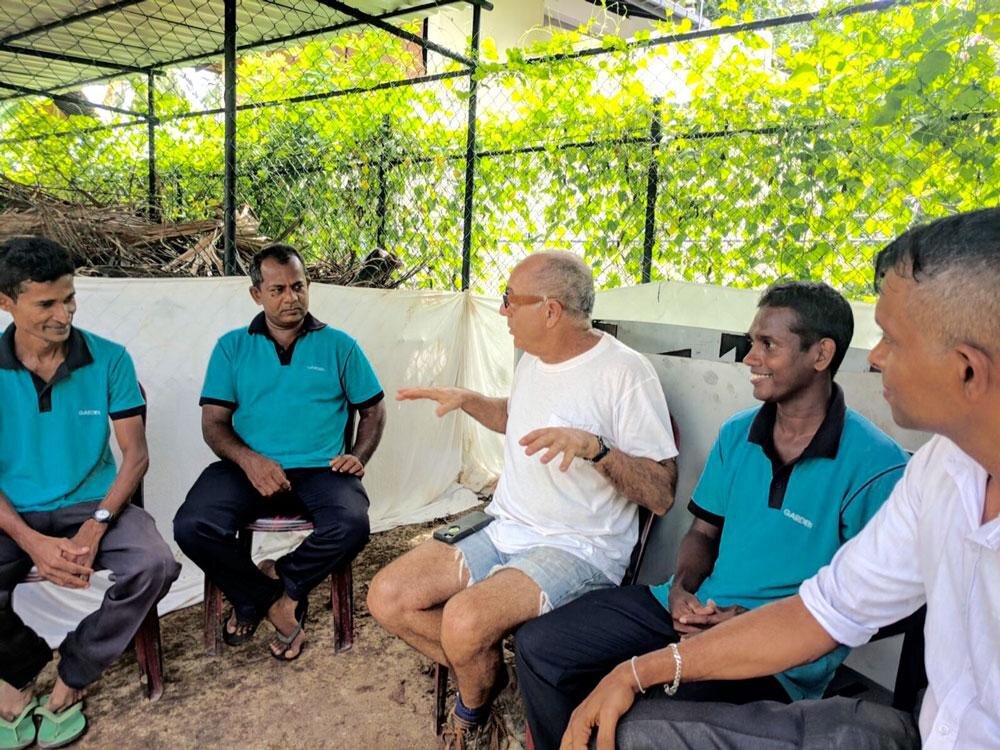
Andrew training the local staff on how to use and maintain the facility, sitting within the "carbon bays" which now hold and dry green and woody waste in preparation for the biochar kiln
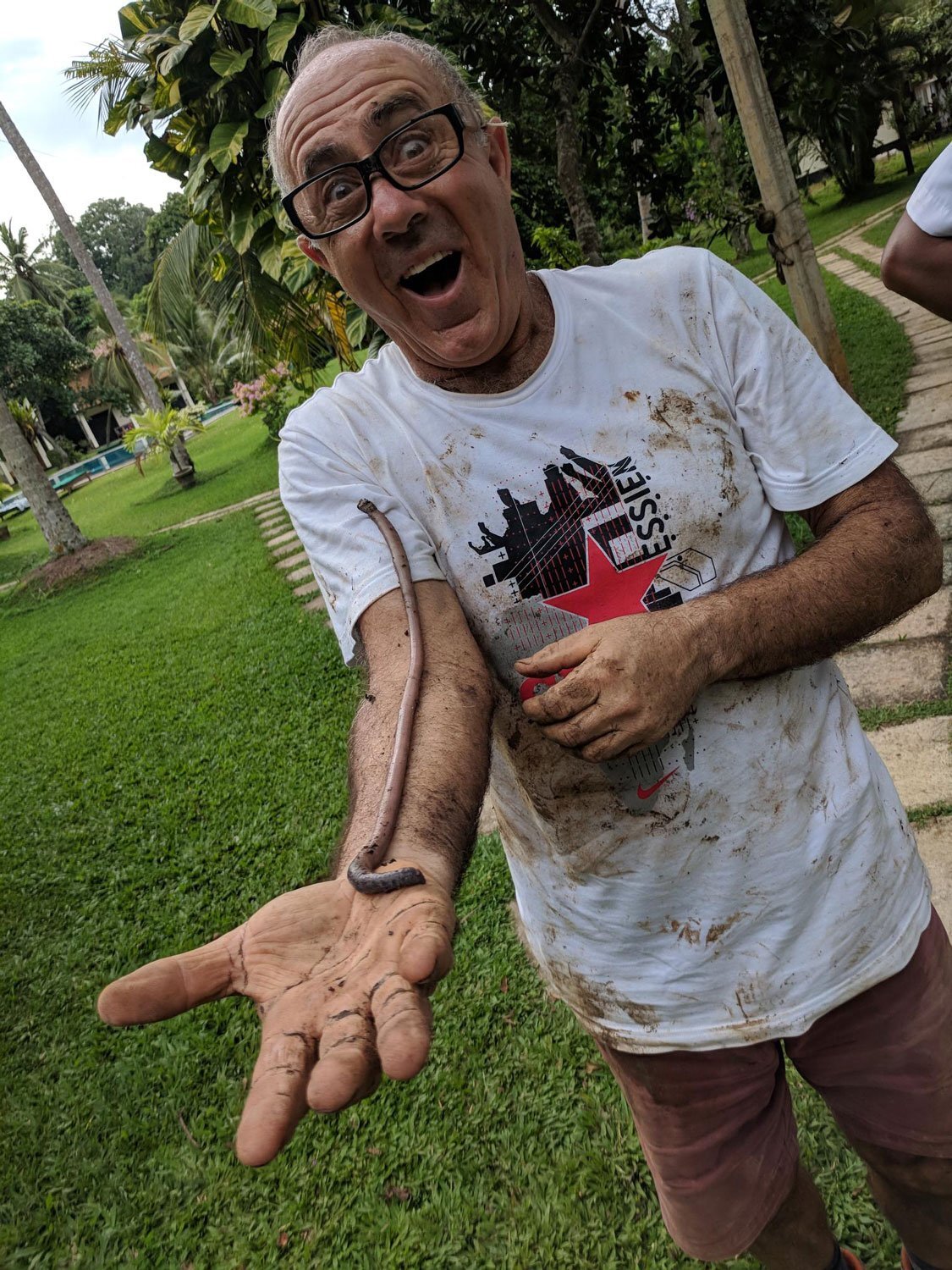
The worms are long and strong in Sri Lanka
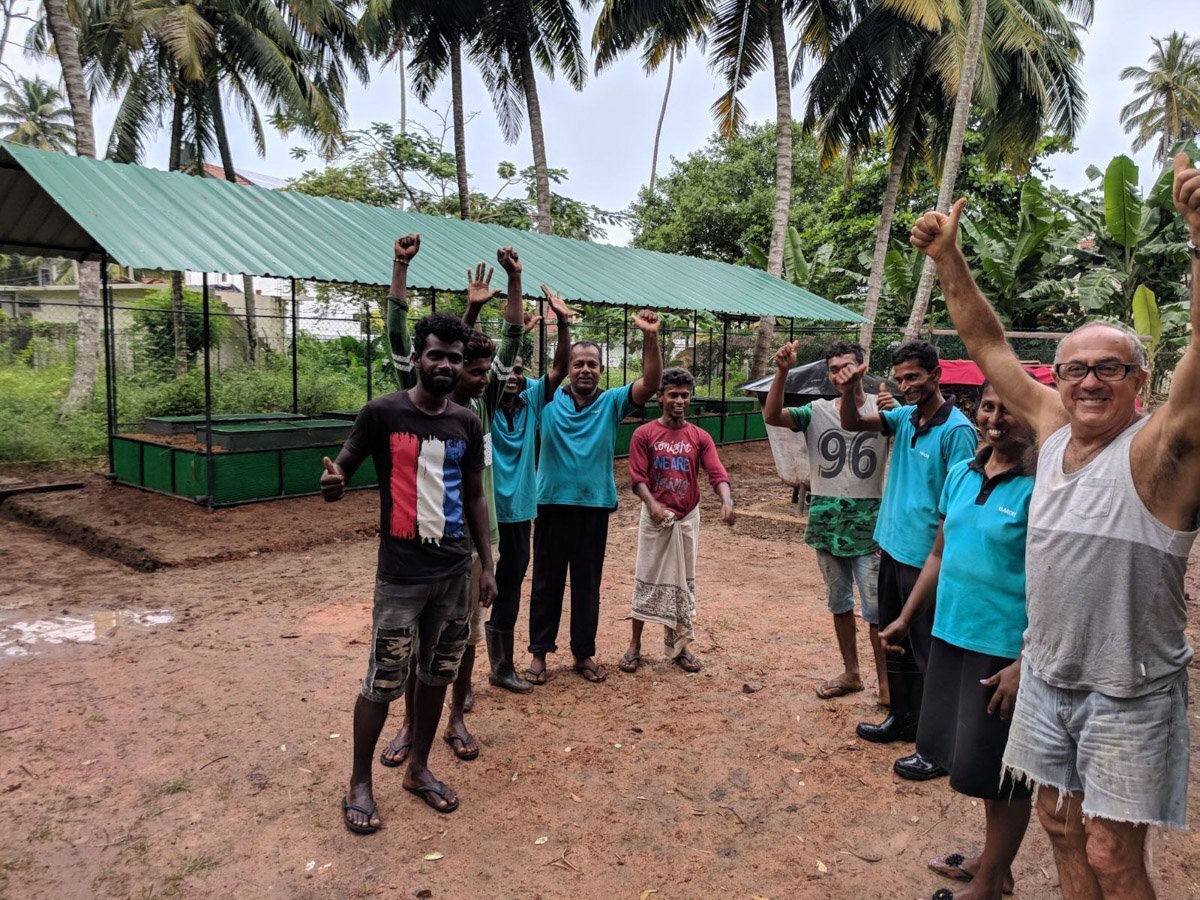
Andrew with the local staff at the completed organics waste facility at the resort

